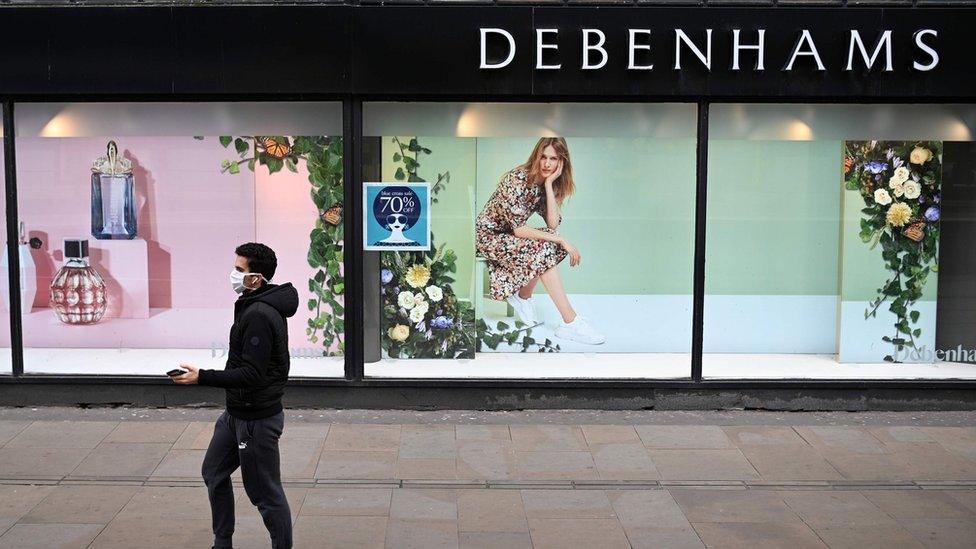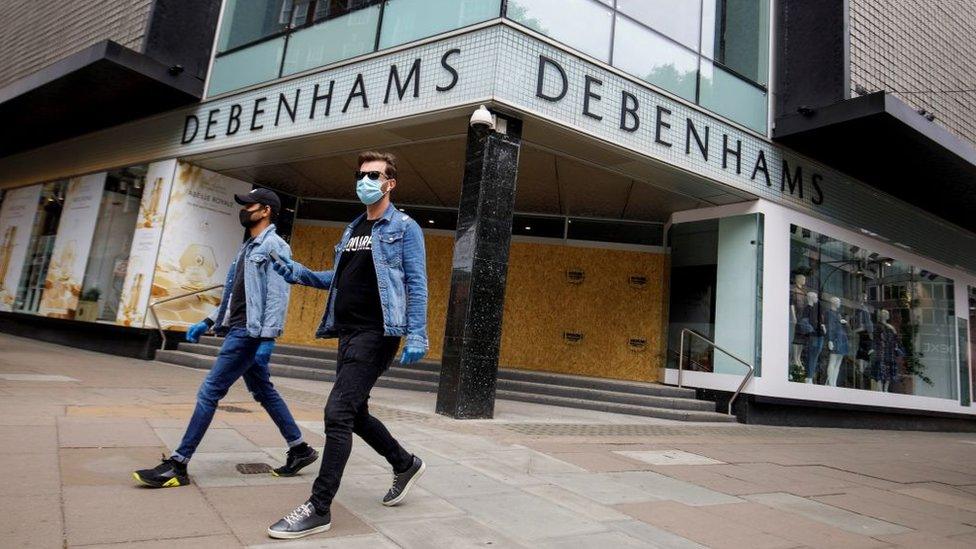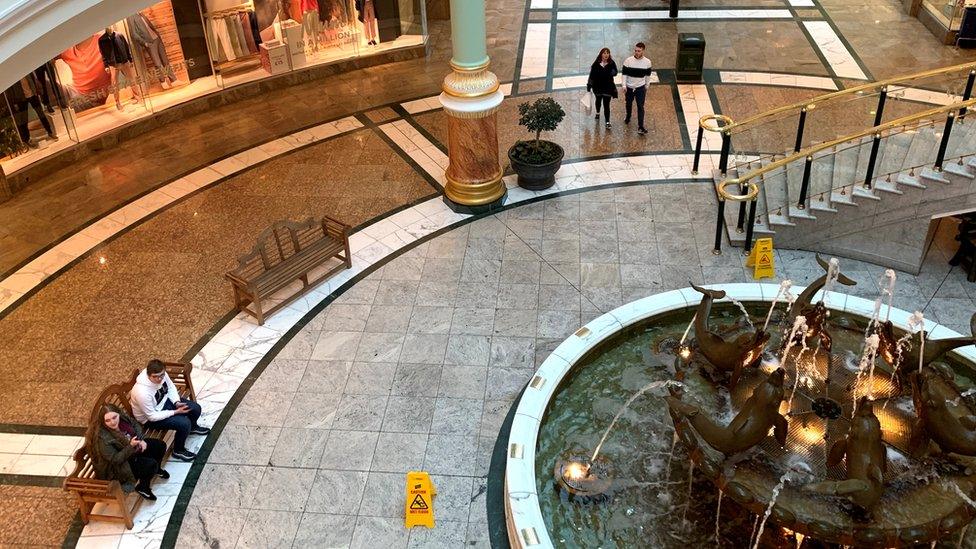Debenhams to close more stores with the loss of 300 jobs
- Published

Debenhams has said it will close another three stores as the retailer grapples with falling High Street sales made worse by the coronavirus lockdown.
Stores at Milton Keynes, Watford and the Metrocentre, Gateshead, will not reopen after lockdown restrictions are eased, meaning about 300 job losses.
Debenhams said it had failed to agree new rental terms with the landlord, Intu, itself in financial trouble.
It means that since April, the retailer has said 20 stores will not reopen.
Last week, the retailer set out plans to reopen more than 50 shops in England and Northern Ireland with the easing of the lockdown. As part of a restructuring, Debenhams has struck deals with landlords to keep 120 stores open.
The group collapsed into administration for the second time in a year in April after coronavirus heaped pressure on the business.
A spokesperson said on Tuesday: "Sadly we have been unable to agree terms with the landlord. As a result these stores will not be re-opening in line with the rest of the chain next week. We greatly regret the effect on our colleagues, who have served our customers with commitment and dedication."
However, Intu said it was still in talks with Debenhams about the future of these three sites and other stores leasing space from its property estate.
An Intu spokesperson said: "We are still in discussion with Debenhams and their administrators on the future of their stores across our portfolio, which have to date been positive.
"This is a lengthy process and we are in the final stages of agreeing terms. Naturally with a portfolio of large-format stores such as these, they offer great opportunities for alternative uses and we remain optimistic about the future of this valuable retail space."
Job cuts
Debenhams had already announced, since April's administration, 17 stores that would not re-open after lockdown, including in Reading, Leicester, Swindon and Croydon.
In addition to store closures, Debenhams has been cutting jobs at its head office and closing the majority of its store cafes in a bid to cut costs.
More than 4,000 jobs will be lost as a result of the restructuring. Debenhams collapsed into what is described as a "light touch" administration, where the current management remains in place while the business cuts costs and finds fresh investment.

Debenhams' bank lenders are said to remain supportive, according to the BBC's business correspondent, Emma Simpson. They took control of the chain when it fell into administration last year, after struggling for years to keep up with the competition.
Much of the High Street was in bad shape even before the lockdown. Several big names had already either shut for good or restructured, and retail analysts predict more closures over the next few months.
Many retailers and restaurants have been trying to renegotiate lower rents as part of their survival plans, putting financial pressure on landlords.
Last month, Intu, whose assets also include Manchester's Trafford Centre, warned that it risks defaulting on its debts unless its lenders give the firm significant breathing space.
The BBC has contacted Intu for comment on Debenhams' closures.
- Published4 June 2020

- Published18 May 2020
